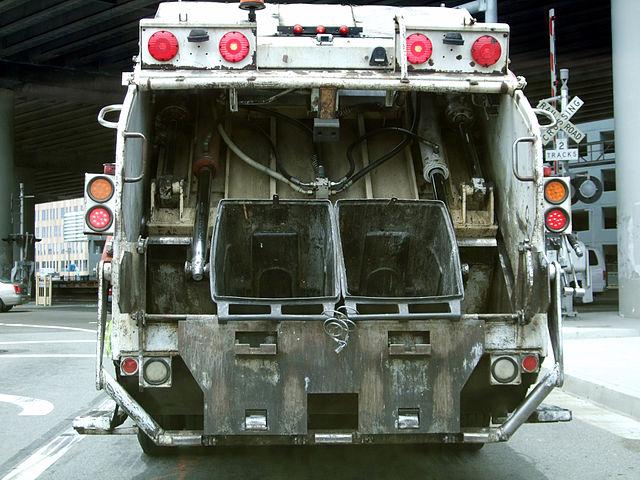
The push for increased sustainable methods can be seen everywhere these days -- certainly when it comes to local efforts to pare down on what we toss in the landfill.
Massachusetts’ ongoing effort to increase composting throughout the state is one such example, which will require any company or facility that disposes of at least a ton of organic material a week to compost its food scraps and other compostable materials. The disposal ban takes effect on Oct. 1 and affects more than 1,500 businesses, hospitals, public offices and facilities. Connecticut and Vermont have similar bans for wasting food that exceeds a 2-ton limit on organic waste per week.
The city of Seattle has also embraced the composting idea with a bit more of a creative edge: In an effort to encourage residents to stop wasting food, the city council passed an ordinance this last Monday that allows households to be fined $1 each time that garbage collectors find more than 10 percent of organic waste in their garbage bins.
Private garbage collectors will have permission to eyeball the garbage bins and decide independently if the resident has exceeded the limit. If so, the homeowner will receive a note tacked to the bin telling the household to expect a $1 fine on the next bill.
Apartment buildings and businesses will get two warnings and then be assessed a $50 fine on the third violation, which is entered into the truck’s computer system. While apartment buildings must have composting bins on site, residents don’t legally have to use them. Businesses don’t need to have the bin, but they are subject to the same two-warning process as apartment buildings.
The new ordinance does seem to beg some questions, such as whether a quick visual analysis (and by a private garbage collector, not the city) can really tell all when it comes to legal infringements of an ordinance. And does the homeowner have any privacy rights when it comes to that half-eaten English muffin or three-quarters consumed apple? What about the other stuff that a recalcitrant resident might have thrown in the trash for quick disposal in the landfill, like phone numbers, bank account information and letters that have privacy concerns?
Sustainability measures seem to be taking us into new territories these days, and Seattle’s continued effort to promote the three Rs (reduce, reuse and recycle) -- and downsize a portion of that 36 million tons of food that end up each year in the U.S. landfill system -- is an example of that. So is its robust recycling program, which is lagging behind in its effort to meet a 60 percent benchmark by 2015. At the present time, its success is at 56 percent, an accomplishment that city council member Sally Bagshaw refers to as “stalled.” There are probably many cities that would consider that a significant coup.
Still, what’s to do with that old, forgotten and green lasagna in the back of the fridge when all you want to do is dispose of it? Will residents weed out their organic material, deciding which they will sacrifice to the allowable 10 percent and which they can bear to open up to compost? And how accurate is scientific analysis anyhow when standing in an alley in Seattle’s finest downpour eyeballing the week’s mildewing garbage collection?
Seattle’s landfill disposal ban takes affect Jan. 1, 2015, with an educational period. Fines won’t start until July of that year.
Image credit: SMcGarnigle
Jan Lee is a former news editor and award-winning editorial writer whose non-fiction and fiction have been published in the U.S., Canada, Mexico, the U.K. and Australia. Her articles and posts can be found on TriplePundit, JustMeans, and her blog, The Multicultural Jew, as well as other publications. She currently splits her residence between the city of Vancouver, British Columbia and the rural farmlands of Idaho.














